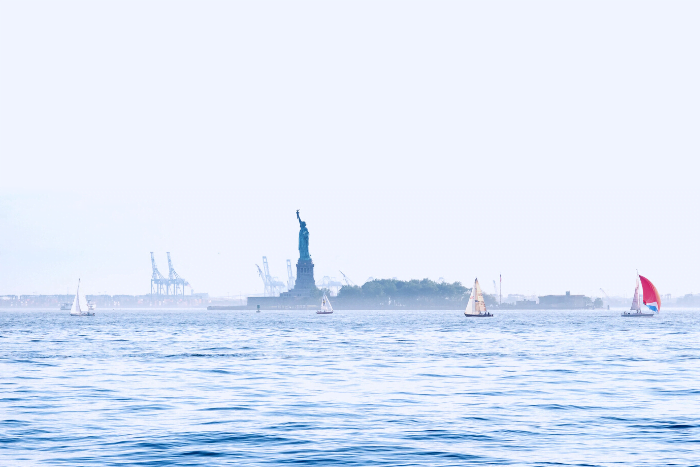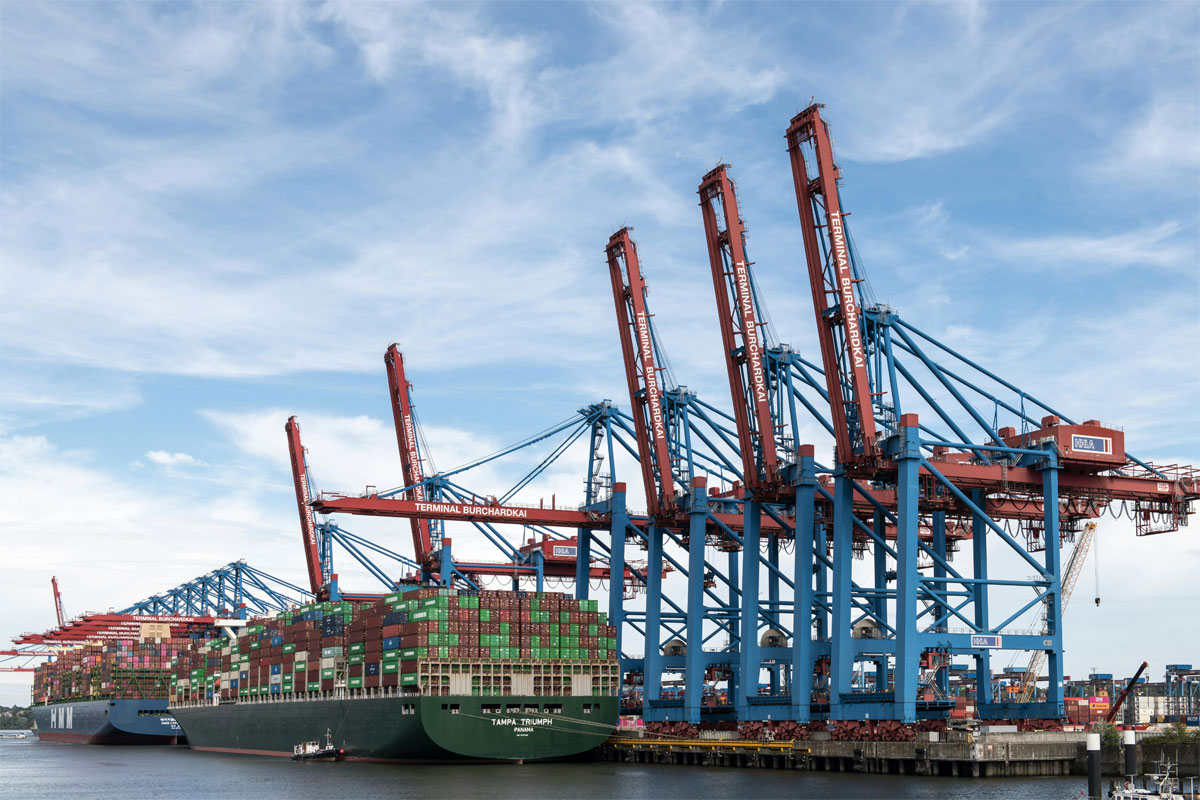Good morning. On behalf of the 250+ importers and exporters companies who are members of the Gemini Shippers Association I would like to thank the Port Authority for their invitation to share our views.
Before I start my comments, I would like to take a quick second to thank all of the transportation providers, terminal operators, organized labor, and port authority staff for their efforts to move our members’ cargo through the supply chain. “Thank you” is not a word you hear often in transportation so the rest of my comments don’t resonate, I hope those two words do.
Today I hope to synthesize some of the critical issues on the minds of shippers and to reflect on some of the key policy issues tied to these issues.
Shippers today face a multitude of challenges, many of which pose a significant risk to their companies profitability and viability. Unfortunately, many of the challenges are ones outside their control to address.
Today the pace of commerce is faster than ever before. Competition in the internet age requires shippers to respond to competitive pressures more quickly. Shifting consumer patterns are changing not only what shoppers buy, but how they shop for them. Despite the generally strong US economy filled with strong growth, corporate earning and low unemployment we see clearly that there are clear winners and losers. So far in 2019, 17 significant retailers have filed for bankruptcy protection. This means that thousands of stores will shutter, and thousands of employees will lose their jobs. Against this backdrop it is now more important than ever for supply chain managers to ensure goods get to the consumer on time and efficiently.
“Shippers today face a multitude of challenges, many of which pose a significant risk to their companies profitability and viability. Unfortunately, many of the challenges are ones outside their control to address.”
Over the last number of years, one fact that has clearly emerged is the interconnected nature of the global supply chains. Changes in one part of the system ripple through the rest of the chain and can often be felt hundreds and thousands of miles away. In 1786 Thomas Reid a Scottish philosopher and founder of “the school of common sense” published the now often recited idiom, “a chain is no stronger than its weakest link” in his Essays on the Intellectual Powers of Man. Today I want to remind all parties that each of us is part of this global supply chain, and our success is tied to those to the left and right of us.
Today there are several public policy issues that are of critical importance to shippers. I will highlight three:
- The State of Global Trade Relations and the impacts of tariff on shippers
- The state of infrastructure and its impact on supply chain operations in the United States
- Federal and State policies that affect supply chain costs and productivity
Most in this room are equally affected, but only some have the ability to effect beneficial change.
Global trade relations
We believe shippers firmly support the administration’s desire to enforce the protection of US intellectual property and the elimination of forced IP transfers to China. We also believe more American companies support a level playing field with all our trading partners around the globe.
We encourage the administration to continue to look for innovative ways to bring our partners to the negotiating table, but we would highlight the severe impacts a prolonged trade war brings to American companies and ultimately the American consumer.
The ongoing tariff actions with China and the failure to ratify the USMCA introduce risk and uncertainty for importers and exporters.
My father used to say, “everyone bleeds in a knife fight.”
Trade wars look a lot like knife fights. And sometimes it’s hard to distinguish the winner from the loser.
Tariff impacts unequally affect small and medium shippers. We often read articles about shifting sourcing to other economies like Vietnam, Indonesia, Malaysia, and the Philippines. While many companies are exploring sourcing changes, the size and scale of China’s exports to the US dwarf the other Asian countries making it impractical for shippers to effect change at scale and in time to avoid the quick pace of these recent tariff increases.
Shifting of sourcing requires both time and money and unequally affects small business. New sources need to be found, machinery needs to be moved or installed. New factories need to be vetted to ensure compliance with Corporate Social Responsibility standards. Infrastructure capacity of ships, containers, ports and roads needs to be assessed.
American companies are resolute and innovative, and everyday Americans understand the need to sacrifice for a greater good but escalating trade tariff wars present a real impact on shippers and as my father professed knife fights take casualties. Its imperative that policy makers understand these real-life impacts and factor them into their strategies
Infrastructure
Americans roads, bridges, harbors, seas and airports are critical natural assets which drive trade, GDP growth, jobs and America’s global competitiveness.
Our country faces a severe lack of investment in infrastructure. Today 71% of the counties national freight tonnage, and over 60% of our trade with Mexico travel by road, let the Highways trust fund only collects around 40 billion of the over 60 billion needed to support the maintenance of our highways. The American Society of Civil engineers identified over a 2 Trillion-dollar gap in infrastructure spending and noted that this lack of investment will cost 4 Trillion dollars in GDP from 2016 to 2025.
Shippers face a multitude of cost and reliability exposure due to poor infrastructure.
Some areas I would highlight:
Our roads and bridges
The cost of transportation by roads snarled by traffic create unnecessary delays and costs while drivers wait in traffic, often missing appointments while at the same time spending excessive costs to repair equipment worn down by the poor condition of roads.
Ports
The need for the US to invest in dredging, and terminal infrastructure to support the largest container ships in the world like our partners in Europe and Asia. While some will point out the service challenges of big ships, it has been undeniable that the unit cost reductions of ultralarge container ships have largely benefited shippers in lower shipping rates. This trend will become even more apparent as new IMO 2020 fuel regulations go into effect on January 1 leading to increased costs for shipping companies.
Inland waterways
Our inlands waterways are a low-cost delivery system often ignored by policy makers. Today much of our system relies on 100-year-old lock infrastructure. We would encourage policy makers to re-envisage inland and coastal waterway routes as a cost-effective manner to reduce congestion and improve the emission footprint of transportation
In a political world that is today more philosophically divided than ever, Infrastructure seems to be one of the few things that lawmakers at the State and Federal level should be able to agree on. Since President Eisenhower led the building of the Interstate Highways system our country has had success when policymakers come together on infrastructure investment.
We believe that infrastructure investment is not only required but is a great place for business, Labor, State and Federal partners to come together to create jobs and projects that will fuel our country’s future growth.
Federal and State policies that affect supply chain costs and productivity
There are many policies I could discuss today but I’ll highlight two that some of my co-panelists will speak on later which have direct cost and productivity impacts on shippers.
First, I will highlight the challenges that shippers face to secure adequate truck power to deliver goods in the US market. For many this has been looked at as a driver shortage. In March the Bureau of Labor Statistics published an article challenging this notion. Citing that this shortage and high driver turnover rates was possibly due to drivers not joining or leaving the workforce because it was not a desirable job. Policies that affect this need to be looked at. Shippers today rely on an adequate supply of diver capacity to deliver goods to market and we need to look at policies that will not only attract new drivers but retain an existing workforce of over 1.7 million heavy truck operators on the road today. I look forward to Mr. Martinez’s thoughts on the recent notice of proposed rulemaking on Hours of Service rules, as well as the under 21 CDL pilot program being considered by the FMCSA.
Another significant challenge shipper’s face is the expanding costs of demurrage and detention. For many today’s demurrage and detention fees feel a lot like the introduction of airline baggage fees. What was originally couched as an incentive to speed up pain loading unloading has now turned into a revenue driver for airlines and a burden for customers. Following this analogy, I still today pay more, the planes don’t leave any sooner, unless I am in Group 1 I’m frustrated knowing I can’t find overhead bin space.
The Federal Maritime Commission under commissioner Dye has recently released a report on its fact-finding issues on this topic. In it she reminds all parties that the purpose of demurrage and detention is to provide a financial incentive to cargo interests to retrieve cargo and move equipment. On behalf of shippers I will firmly state that generally we want nothing more than to do this. We encourage all the stakeholder to realize the multitude of challenge we face and to not create a fee structure that moves from financial incentive to profit mindedness. We would also seek policy makers to look at this same problem at inland rail ramps where the problems are maybe even more pervasive. In the airline world, abuse of passengers has led to the introduction of law this summer by the US Senate for a passengers bill of rights. I would hope that overregulation in our world isn’t necessary and that stakeholders could come together to find workable costs effective solutions.
In closing, shippers rely on the parties and policy makers in this room to provide the transportation network and trade policy required to move products to market. We believe that this interconnected system requires collaboration and communication of stakeholders over competition. We encourage all the parties to think about how their decision and policies might impact and affect other parts of the supply chain. And encourage policy makers at the state and federal level to find avenues to work with the private-public model to fund badly needed infrastructure improvements.


